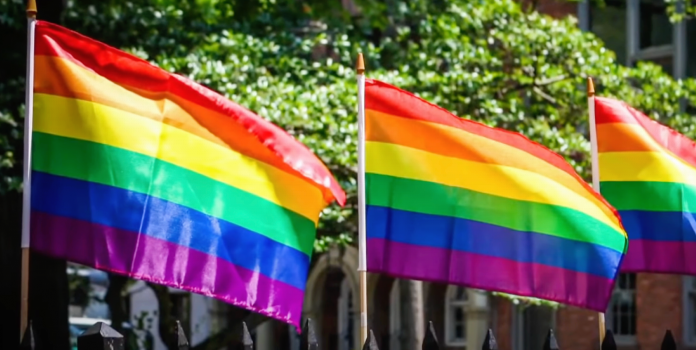(Headline USA) A United Nations agency claimed this week that reports linking the monkeypox outbreak to the LGBT community “reinforce homophobic and racist stereotypes and exacerbate stigma.”
Citing recent reports about how the virus is largely spreading among the LGBT community, UNAIDS admitted that a “significant portion” of cases reported thus far were “identified among gay, bisexual, and other men who have sex with men,” but said we shouldn’t emphasize that point.
“Lessons from the AIDS response show that stigma and blame directed at certain groups of people can rapidly undermine outbreak response,” the agency said in a statement, urging “media, governments, and communities” to instead “respond with a rights-based, evidence-based approach that avoids stigma.”
UNAIDS Deputy Executive Director Matthew Kavanagh claimed “stigmatizing rhetoric” can stoke “cycles of fear, driving people away from health services, impeding efforts to identify cases, and encouraging ineffective, punitive measures.”
“We appreciate the LGBTI community for having led the way on raising awareness – and we reiterate that this disease can affect anyone,” he said in a statement.
A significant portion of the recently reported #Monkeypox cases has been identified among the LGBTI community.@UNAIDS expressed concern on Sunday about some public media reporting and commentary reinforcing homophobic and racist stereotypes.
https://t.co/b4r2wACMTs— UN News (@UN_News_Centre) May 22, 2022
Monkeypox is related to smallpox and is typically detected in Africa. It began to spread in Europe and America recently, and is the result of sexual transmission among gay and bisexual men at a number of raves held in Spain and Belgium, according to Dr. David Heymann, who formerly headed the World Health Organization’s emergencies department.
“We know monkeypox can spread when there is close contact with the lesions of someone who is infected, and it looks like sexual contact has now amplified that transmission,” Heymann said.
To date, WHO has recorded more than 90 cases of monkeypox in a dozen countries including Britain, Spain, Israel, France, Switzerland, the U.S. and Australia.
Monkeypox typically causes fever, chills, rash, and lesions on the face or genitals. It can be spread through close contact with an infected person or their clothing or bedsheets, but sexual transmission has not yet been documented.

